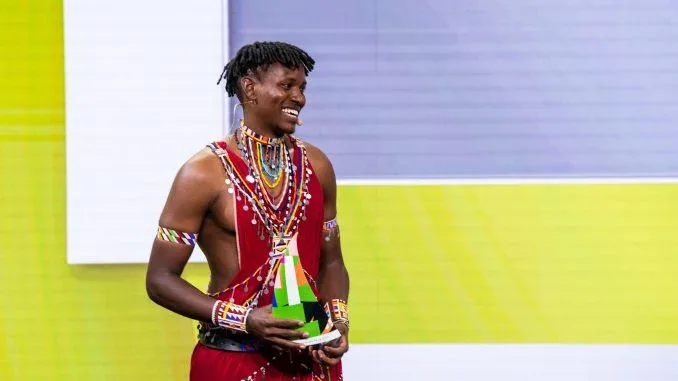Richard Turere emerged as the winner in the Young Inventor Prize at the European Inventor Award 2023. He was distinguished for developing a system to ward off lions and other predators from livestock. The system uses light sequences in order to protect his community’s livestock without harming the endangered lions.
The lion population in Africa is estimated to have declined by 43% in the past 20 years, with roughly 20,000 lions thought to be roaming the entire continent, according to the World Wide Fund for Nature (WWF). Many lions are killed to stop them from eating precious livestock, which is a key concern for the Maasai of Kenya.
The prize recognizes young innovators aged 30 or under who have developed technological solutions to tackle global problems and help reach the UN Sustainable Development Goals (SDGs). Turere’s invention contributes to UN SDG 15: Life on Land, which includes protecting, restoring and promoting sustainable use of terrestrial ecosystems.
Many prey animals of the Nairobi National Park, near where Turere grew up, seek shelter in communal lands to escape the threat of predators. Lions have also been drawn to hunt livestock in areas where humans live, which put the local communities’ food and income at risk. Efforts by the government to pay farmers for their lost animals were too expensive and unsustainable. To counteract this risk, lions were often killed, significantly impacting the lion population, the area’s biodiversity and tourism.
After testing several ideas, Turere’s invention, known as Lion Lights™, is based on a simple concept: visually replicating the human presence that keeps lions away. Using changing sequences of flashing lights mounted on fences, the lions cannot become comfortable with the patterns and are discouraged from hunting livestock. As word of his technology and its success spread, other community members began requesting the system for their properties, and now over 2,000 homes in Kenya use Lion Lights.
The system typically runs on solar energy but can also be coupled with wind power when the weather is cloudy or there is little sun. It has attracted international attention and has been implemented in several other countries, including Tanzania, Botswana, Namibia, Argentina, and India, where it has helped deter various species of animals, such as hyenas, leopards and cheetahs.
Richard Turere invented the Lion Lights system at age 11. As a young Maasai boy, Turere was entrusted with the vital responsibility of herding and protecting his family’s cattle from predators. He recognized the need for a solution to deter lions and other predators from attacking livestock, which led him to develop the innovative light system that has since gained global recognition. In 2013, he founded the Lion Lights organization, which now collaborates with more than 50 young people in his native village.
Turere’s dedication and resourcefulness earned him the attention of Wildlife-Direct, a charitable organisation led by Dr Paula Kahumbu. Through their support, he won a scholarship to Brookhouse School in Nairobi, where he studied A-Levels. He later completed a BA in Global Challenges and Wildlife Conservation at the African Leadership University.
In recognition of his achievements, Turere has received numerous accolades, such as a special commendation at the Africa Leadership Awards, being a finalist at the Anzisha Prize Awards, and being named a National Geographic Young Explorer in 2020. He was also a finalist for a Future for Nature award in 2021.
The European Patent Office (EPO) established the Young Inventors Prize in 2021 to inspire the next generation of inventors. Aimed at innovators aged 30 or below from all around the world, it recognises initiatives that use technology to contribute toward the UN’s Sustainable Development Goals (SDGs).
The winner will receive EUR 20 000, the second and third placed finalists will receive EUR 10 000 and EUR 5 000, respectively. An independent jury comprising former finalists of the European Inventor Award selects the finalists and winner. The EPO will confer the prize at the European Inventor Award 2023 hybrid ceremony on 4 July. Unlike the traditional Award categories, the Young Inventors Prize finalists do not need a granted European patent to be considered for the prize.

